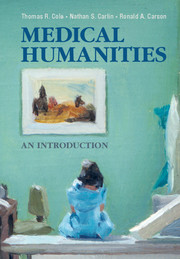Book contents
23 - Suffering and Hope
from Part IV - Religion and Medicine
Summary
Pandora, the first mortal woman, received from Zeus a box that she was forbidden to open. The box contained all human blessings and all human curses. Temptation overcame restraint, and Pandora opened it. In a moment, all the curses were released into the world, and all the blessings escaped and were lost – except one: hope. Without hope, mortals could not endure.
– Greek MythologyProvidence does not mean a divine planning by which everything is predetermined . . . .Rather, Providence means that there is a creative and saving possibility implied in every situation.
– Paul TillichAbstract
This chapter explores suffering and hope in the context of medicine. Beginning with a discussion of Eric Cassell’s claim that physicians should attend to pain and suffering, it examines possible religious answers to patients’ existential struggles to find meaning in their illnesses; the practical theodicies that health care professionals often construct or hold onto to help them deal with suffering; and the nature and role of hope in patients’ lives and clinical practice. Then, with a focus on the inevitability of suffering, it suggests that we should do our best to create the conditions for hope.
- Type
- Chapter
- Information
- Medical Humanities , pp. 358 - 372Publisher: Cambridge University PressPrint publication year: 2014



